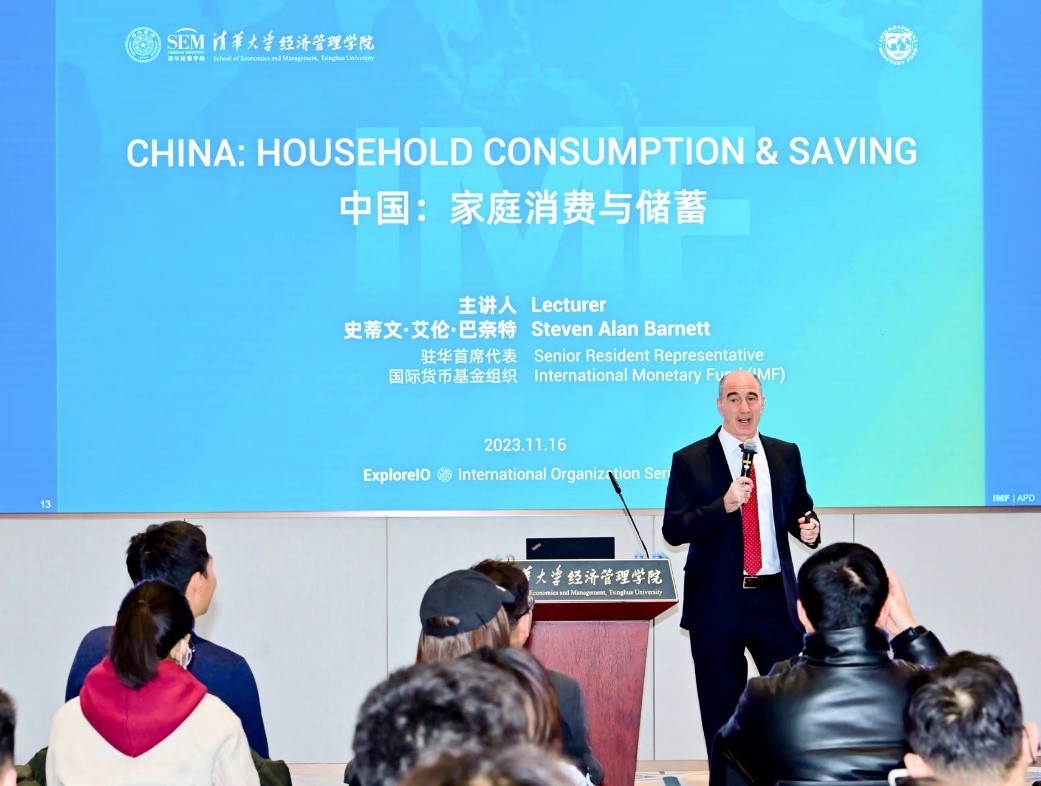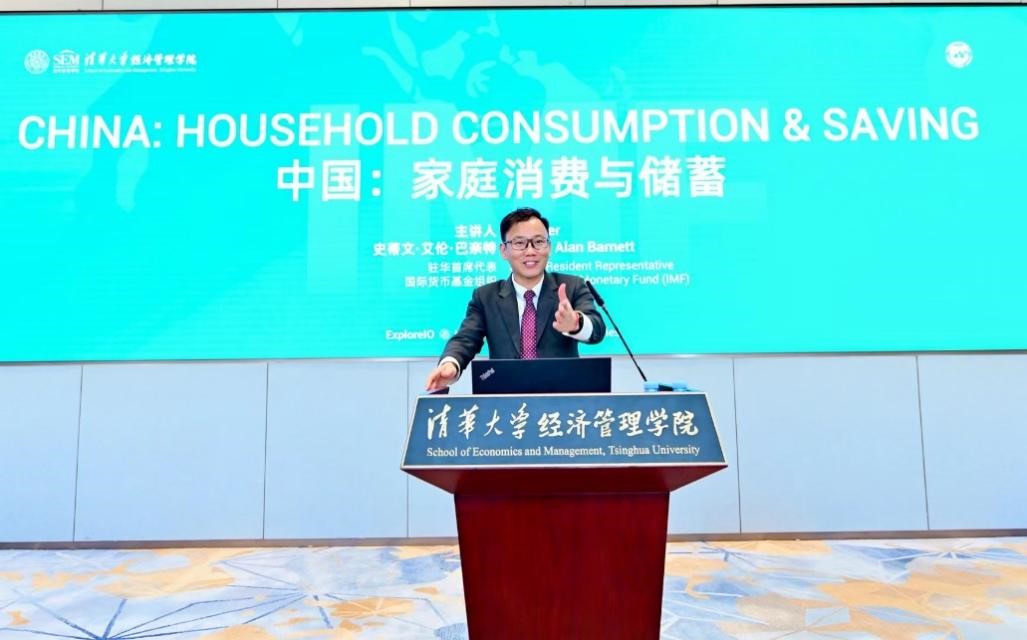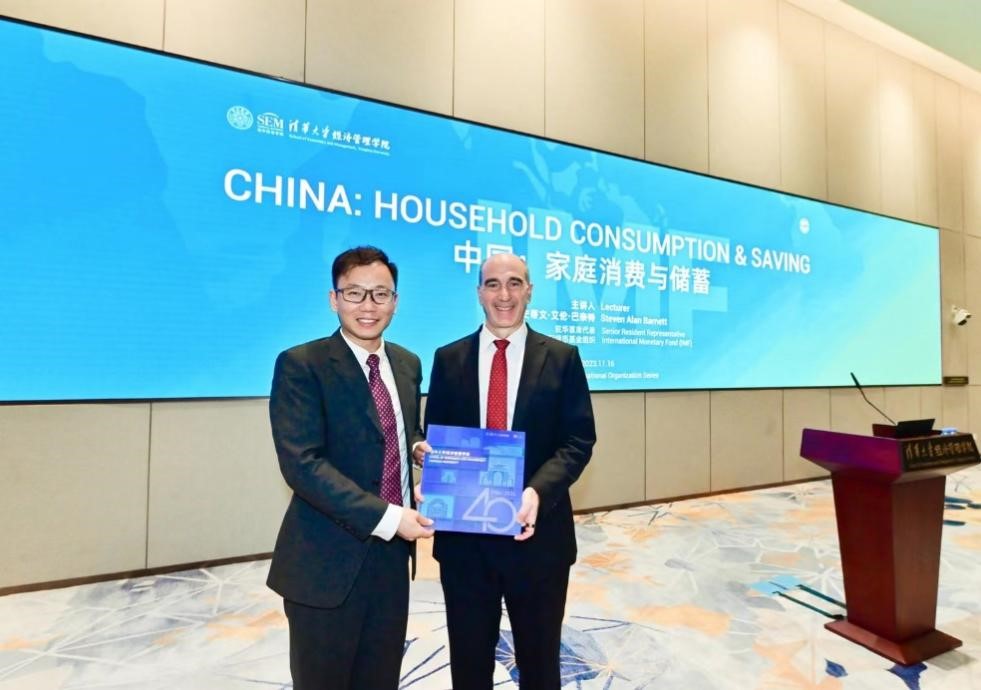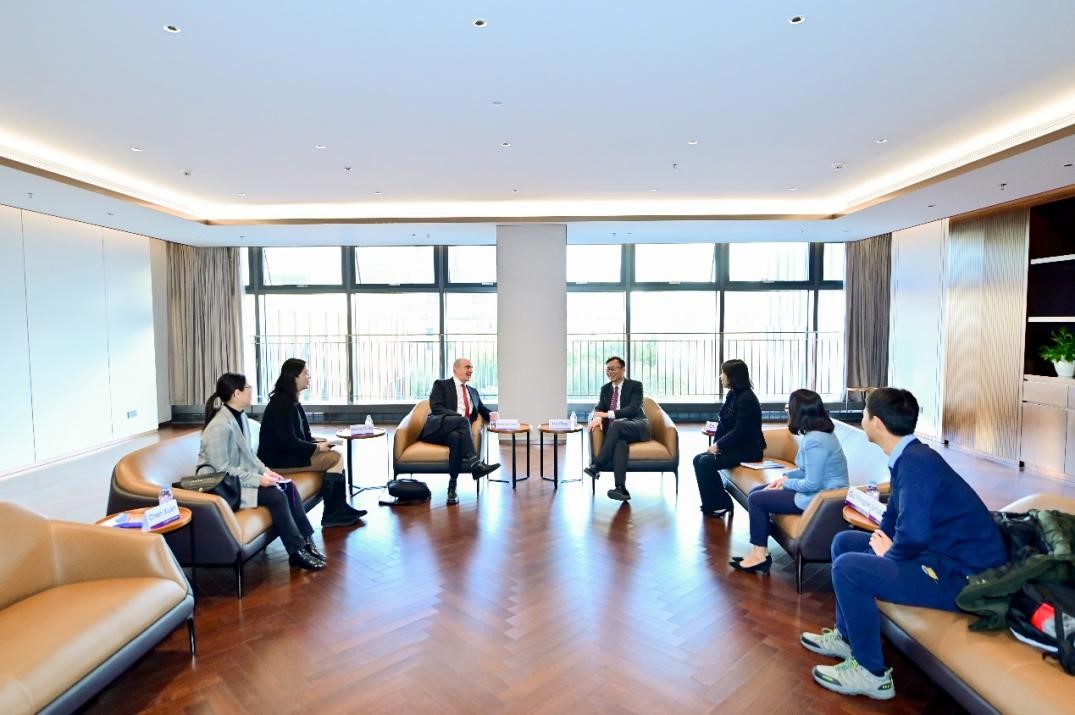The International Monetary Fund's (IMF) senior resident representative in China, Steven Alan Barnett, visited Tsinghua School of Economics and Management (Tsinghua SEM) on November 16, 2023, and delivered a keynote speech titled "China: Household Consumption & Saving."
The event was attended by HE Ping, Tsinghua SEM's vice dean; CHI Wei, assistant dean of Tsinghua SEM; HUANG Cheng, deputy director of the Center for Global Competence Development at Tsinghua University; and GU Yingjie, director of the Career Development Center of Tsinghua SEM. The session was presided over by HE Ping.

Steven Alan Barnett delivers his speech.
HE Ping welcomed Barnett on behalf of the school. He briefly introduced the significant role of the IMF in helping member countries improve productivity, create jobs, and promote economic well-being. He encouraged students and guests present to actively engage in discussions.

HE Ping presides over the session.
In his speech, Barnett affirmed China's contribution to global economic growth, noting that China's economy has maintained high-speed growth over the past few decades, distinguishing itself among nations worldwide. The output of emerging markets and developing economies has surpassed that of developed economies, largely thanks to China's growth, Barnett said. He pointed out that while China's per capita GDP and consumption are maintaining a fast-growing trend, there is still significant room for improvement in the proportion of consumption in GDP compared to developed economies such as the United States and Europe.
Subsequently, Barnett conducted a thorough analysis of China's household consumption and savings. He described the dynamic process of consumption levels over the past few decades in China, the United States and Europe, highlighting two major features of Chinese household consumption - the remarkable growth rate that surpasses the global average and the comparatively lower proportion of consumption in GDP when compared to the global context. This is because China's output growth rate exceeds the consumption growth rate, with output rapidly converging to world-leading levels, while consumption levels converge more slowly, Barnett explained. He also compared household savings and consumption in China, the European Union, and the United States during the pandemic, finding that China's trends in consumption and savings were similar to those of other countries. The savings rate increased during the peak of the pandemic and remained higher than historical levels.
Regarding the high savings rate, Barnett compared the differences between national accounts data and survey data and pointed out the advantages and disadvantages of different theories that explain the high savings rate, citing social security and housing prices as factors. He believes that reducing savings can be accomplished by encouraging families to increase consumption.
Barnett said that he believes that consumption can be encouraged by boosting disposable income for families. Increasing households' disposable income can be achieved through tax reforms and industrial restructuring, transitioning from the manufacturing sector to the service sector, where the proportion of labor income is higher.
In the Q&A session, Barnett engaged in discussions with students on topics such as aging populations, economic stimulus measures, and productivity growth in times of technological change.
At the end of the event, HE Ping presented a commemorative gift from Tsinghua SEM to Barnett, and they took a group photo together.

HE Ping presents a commemorative gift to Steven Alan Barnett.

Participants pose for a group photo.
Before the speech, Barnett had a meeting and talked with HE Ping, CHI Wei, HUANG Cheng, and GU Yingjie.

Steven Barnett meets with Tsinghua SEM faculty and staff.
 Latest News
Latest News